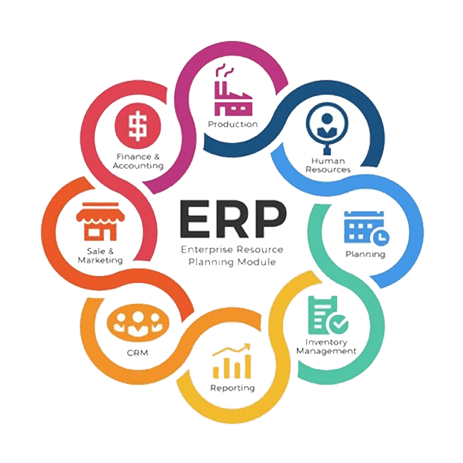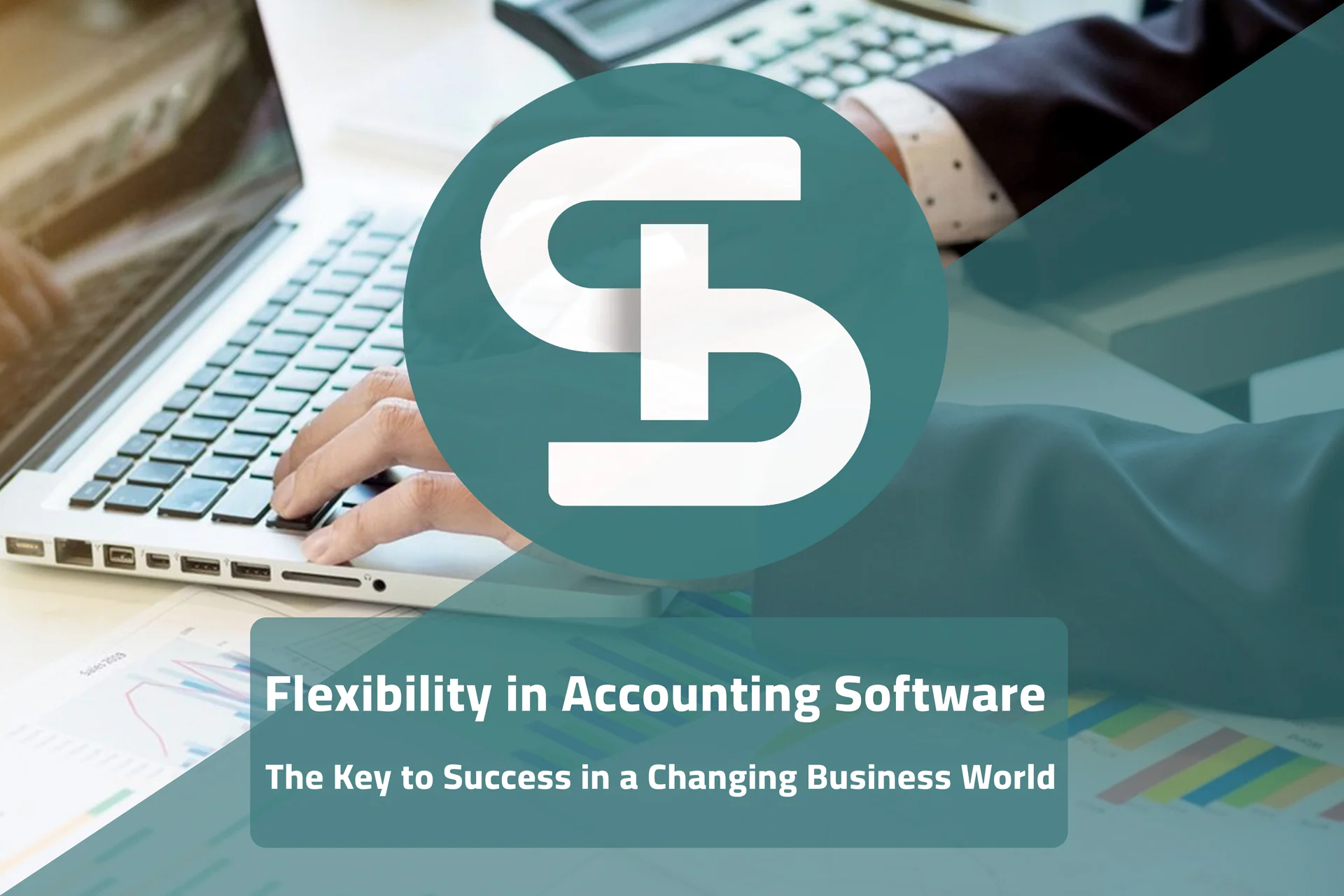Flexibility in Accounting Software: The Key to Success in a Changing Business World
Introduction
In today’s fast-paced business world and with constant technological advancements, accounting software has evolved beyond merely managing accounts. It has become a strategic partner for businesses, helping them make informed financial decisions and achieve sustainable growth. Companies today need accounting software that not only handles daily transactions but also adapts to internal and external changes efficiently.
This is where the importance of flexibility comes in. Flexible accounting software allows businesses to manage their financial operations while staying agile in the face of market fluctuations, regulatory shifts, and technological advancements. In this context, flexibility becomes a critical factor in overcoming various challenges, both financial and operational.
What Does Flexibility in Accounting Software Mean?
Flexibility in accounting software refers to its ability to adapt to the continuous changes that businesses face. These changes can be related to tax laws, regulatory requirements, or even the expansion of business operations. A flexible accounting system can be customized to meet the specific needs of each company without the need for complex coding changes or manual interventions.
For instance, some companies require accounting systems that can quickly adapt to new legislation, while others need a system that focuses on managing complex inventory or improving cash flow management. Flexibility is crucial in ensuring that the accounting software can meet these changing needs without requiring costly upgrades or operational disruption.

The Importance of Flexibility in Accounting Software
1. Adapting to Regulatory and Legislative Changes
Regulatory changes, particularly in tax and financial reporting, are frequent. In many countries, governments issue new laws related to financial disclosures or tax systems, requiring companies to adapt quickly to remain compliant and avoid fines. A flexible accounting system allows businesses to update their systems easily without manual intervention or significant disruptions.
For example, when tax rates change or new reporting requirements emerge, the accounting software should be able to implement these adjustments swiftly and accurately to ensure immediate compliance.
2. Supporting Growth and Expansion
As businesses expand and their financial operations grow in complexity, having an accounting system capable of managing this growth becomes crucial. An inflexible system can hinder expansion, delaying financial processes and slowing down overall business growth. Flexibility allows companies to add new modules, expand data capacity, and manage increasingly complex operations without the need to invest in entirely new systems.
This flexibility enables startups, for example, to begin with a simple system and gradually upgrade it as their business grows, reducing costs and improving operational efficiency.
3. Integration with Other Systems
It’s essential for accounting software to integrate seamlessly with other systems used within the company, such as Customer Relationship Management (CRM) systems or inventory management systems. Modern businesses rely on multiple platforms to manage operations, and the ability to integrate these platforms ensures a smooth flow of information, improving overall operational efficiency.
For instance, when a sale is made, this transaction should automatically integrate with the accounting system, allowing finance teams to monitor financial performance in real-time and generate reports promptly.
4. Enhancing User Experience
Flexibility in accounting software isn’t just about technology; it’s also about providing a seamless user experience. The easier and more customizable the software is for different employees within the company, the more effective it will be in supporting daily financial operations. Modern accounting software provides user interfaces that can be tailored to the specific roles of employees, whether they are financial managers, accountants, or operations supervisors.

The Role of Artificial Intelligence in Enhancing Flexibility
Artificial Intelligence (AI) is a major factor in enhancing the flexibility of accounting software. AI helps in analyzing large financial datasets and forecasting future trends, providing businesses with data-driven decisions rather than relying on guesswork. Additionally, AI can automate routine tasks, such as invoice classification and expense tracking, reducing human error and increasing operational efficiency.
AI applications can also offer advanced analytics that detect unusual financial patterns, allowing businesses to identify potential financial risks or investment opportunities early. This contributes significantly to improving financial performance and minimizing risks.
Financial Forecasting
Through machine learning and data analysis, advanced accounting software can predict future financial trends based on historical data. This helps businesses make proactive decisions, such as planning expansions or cost-cutting measures, based on accurate forecasts. Thus, flexibility in accounting software becomes a strategic tool in financial planning.
Automating Repetitive Tasks
AI-powered accounting software can automate many repetitive processes like data entry and transaction categorization, minimizing manual effort and simplifying operations. This saves accountants time and allows them to focus on more strategic tasks.
SwiftBooks: Offering Flexible Solutions
SwiftBooks is one of the leading companies in providing innovative and flexible accounting solutions. SwiftBooks offers accounting software tailored to the needs of various types of businesses, ensuring constant updates to meet the ever-changing demands of the business world. With a combination of high customization and integrated technical support, SwiftBooks empowers companies to manage their financial operations efficiently and flexibly.
1. High Customization According to Client Needs
SwiftBooks allows its software to be customized to fit the specific requirements of each company, whether it’s a small business or a large enterprise, operating in manufacturing, trade, or services. Solutions are individually tailored to meet the needs of each client, ensuring business continuity without any disruptions or the need to change accounting solutions during expansion.
2. Continuous Updates to Keep Pace with Changes
SwiftBooks is committed to regularly updating its accounting system to keep up with the latest advancements in technology and accounting standards. This ensures that companies using SwiftBooks are always compliant with new tax regulations and accounting rules without the need for manual changes. These updates include performance improvements and the addition of new features to enhance the user experience.
3. Comprehensive Technical Support
SwiftBooks provides comprehensive technical support to help clients use the system efficiently. Whether users need assistance with the initial setup or troubleshooting specific technical issues, the support team is available around the clock. This technical support is a key part of offering flexible solutions that meet the ever-changing needs of businesses.
Read more:
- The Crucial Role of Financial Accounting in Business Success Using Advanced Accounting Software
- What is Capital and How to Manage it Efficiently Using Swiftbooks
- Best Accounting Software in Egypt 2024 – Comparison and User Reviews: Swiftbooks
- The Best Accounting System for Various Business Operations: The Ultimate Solution for Achieving Business Success in 2024
Programs and Services:
- Learn more about Swiftbooks
- E-invoice software to facilitate the submission of direct invoices and sales tax authorities
- Discover our comprehensive services for your business

